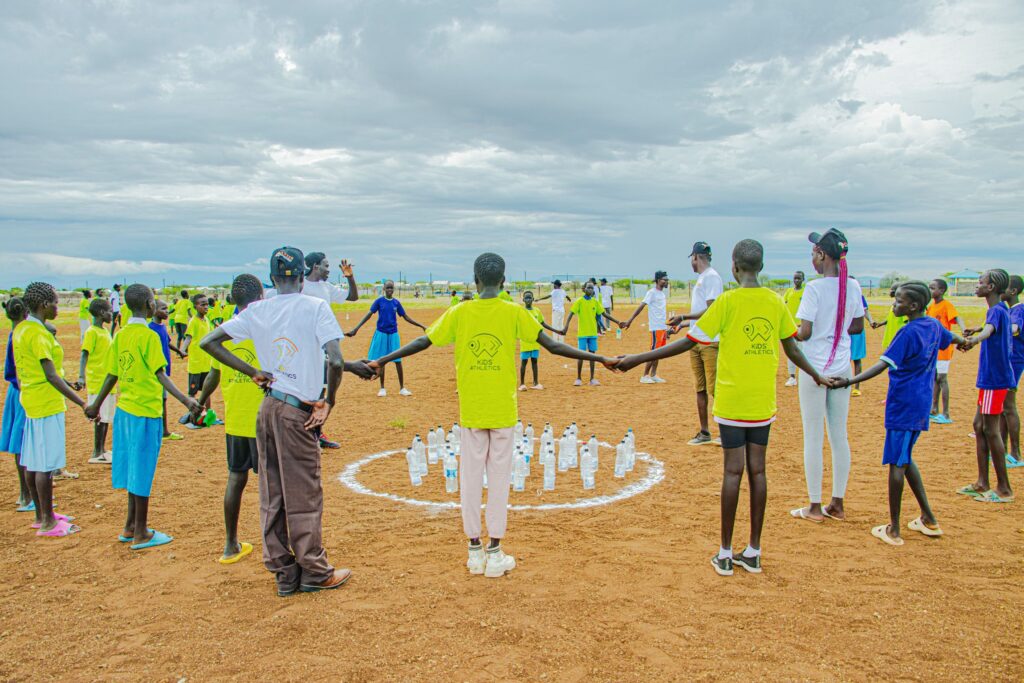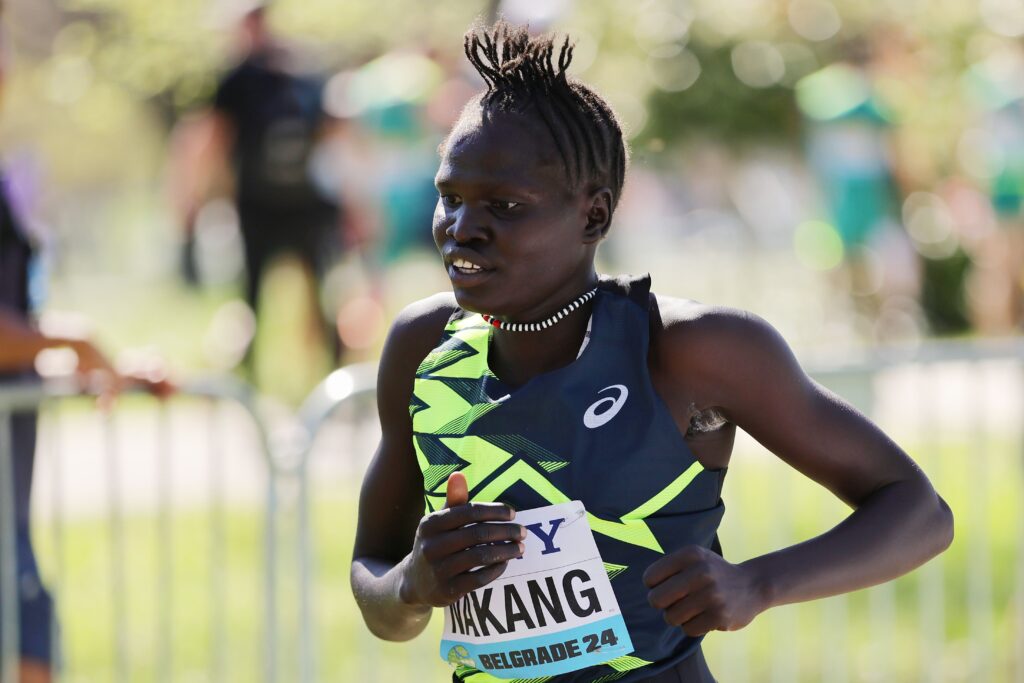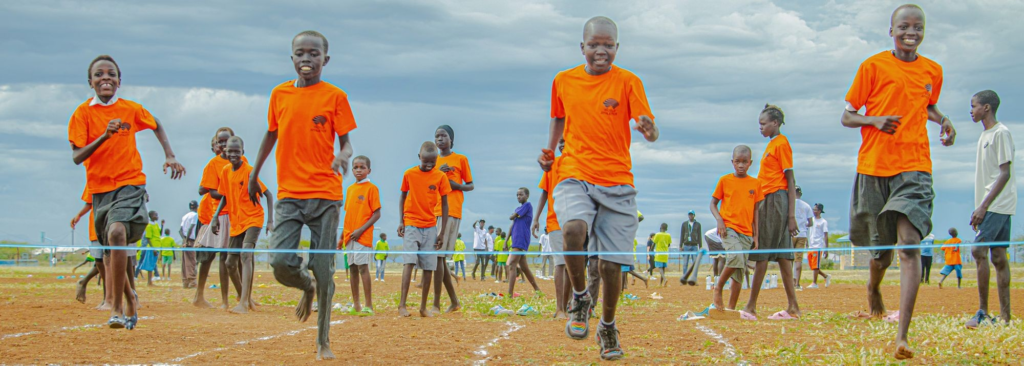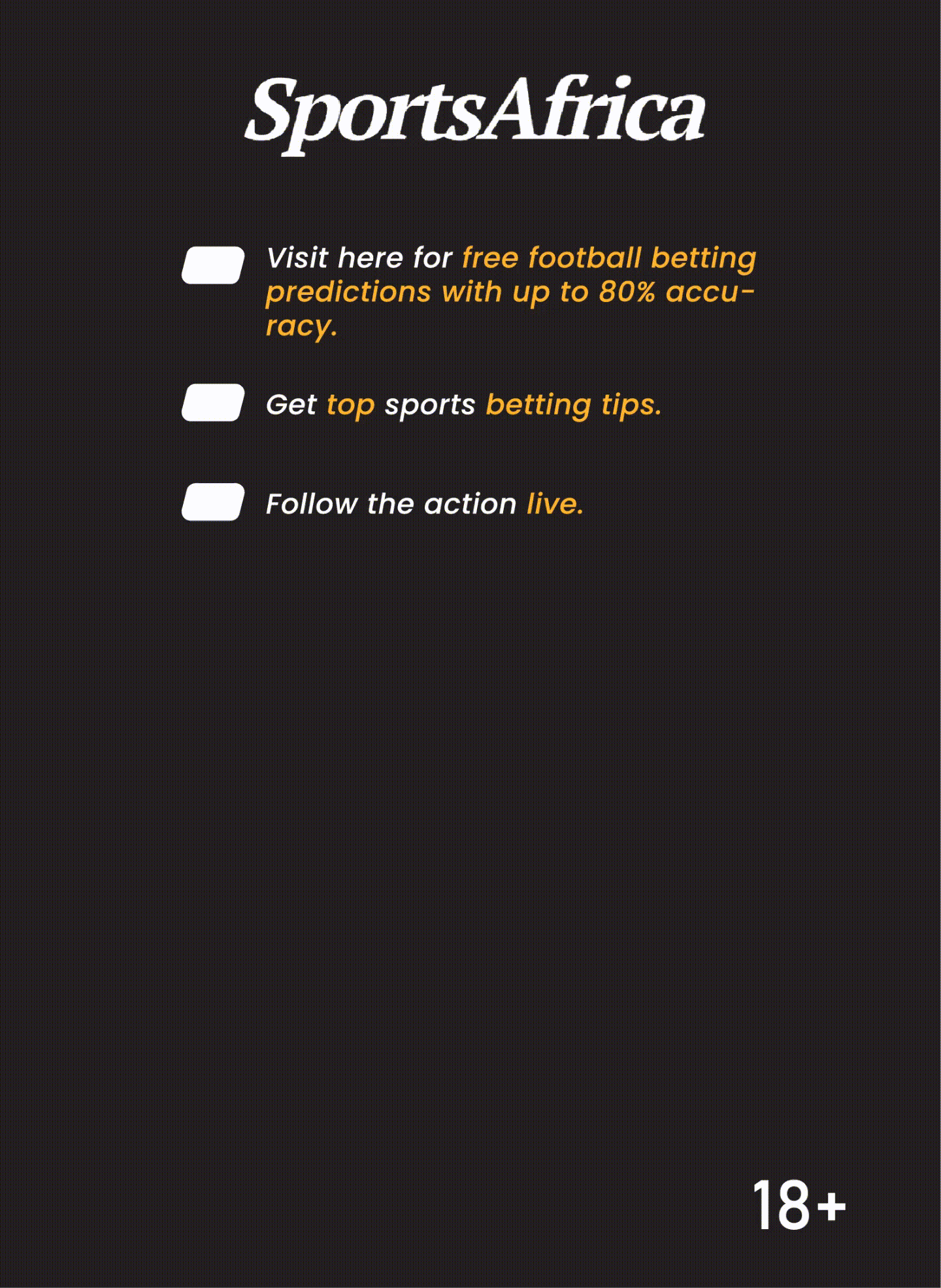Kids at Kakuma Refugee Camp in Kenya have discovered a new sense of home through an initiative called Kids’ Athletics.
Home can mean different things to different people—it can be a place, a sense of belonging, or a feeling of happiness.
For the refugees at the Kakuma camp and the nearby Kalobeyei settlement, home has increasingly come to mean the camaraderie and joy experienced at a Kids’ Athletics gathering.
The Kalobeyei Sports Complex within the refugee settlement came alive with the buzz of athletic activities two months ago.
A total of 125 young people from five schools participated in the Kids’ Athletics event, held as part of a four-day workshop.
This event was part of a collaboration between World Athletics and AHEEN (African Higher Education in Emergencies Network) aimed at integrating sports into the lives of young refugees, promoting physical, social, cognitive, and emotional wellbeing through sports science.
The initiative, supported by UNHCR and the refugee-led organization Youth Education and Sports (YES), saw 23 teachers from four refugee schools and one from the host community applying their newly acquired skills to deliver a fun and engaging event for the children.
They were assisted by the U20 Athlete Refugee Team, a group supported by World Athletics under the AHEEN Athletics & Education program.

The importance of reaching children at the grassroots level through sports, particularly those in difficult situations, cannot be overstated. The Kids’ Athletics program, as emphasized by World Athletics President Sebastian Coe, serves as a vehicle to inspire displaced youth about athletics.
By adopting a holistic approach that combines social, emotional, and mental elements, the program promotes a sense of wellbeing and belonging, especially in the challenging environment of a refugee camp.
Barbara Moser-Mercer, the coordinator of AHEEN and designer of its Athletics & Education program, reflected on the workshop and the event, noting the community’s enthusiastic participation and the potential for future expansion.
The involvement of both teachers and children showcased the vital role of sport in wellbeing, particularly in fragile refugee contexts.
Moser-Mercer highlighted the efforts made to adapt the Kids’ Athletics program to fit the specific needs of the local community, ensuring its activities were relevant and beneficial.
For Catherine O’Sullivan, Senior Manager of Kids’ Athletics at World Athletics, the workshop underscored the importance of the program and its positive impact over the years.
Seeing the smiles and positive experiences brought to children in challenging conditions was particularly heartwarming.

The end of the event was marked by shared food, awarded certificates, numerous photos, and a sense of celebration that left a lasting impact on everyone involved. Athletics brought a much-needed sense of joy and normalcy, making the young participants feel at home.
Kids’ Athletics, implemented in over 150 countries, uses the power of athletics to inspire children and young people to be more active, develop skills and confidence, and foster a lifelong connection with sports.
The program, developed by coaches, teachers, and young people globally, offers a holistic, fun, and quality experience tailored to diverse communities and individual needs.
The first day of the workshop in Kakuma and Kalobeyei focused on theory, emphasizing the key concepts and principles of Kids’ Athletics.
Participants learned about the value of sports in community and social cohesion, creating positive experiences for young people, and adapting activities to meet community and individual needs. The aim was to ensure children had a quality experience and felt a sense of belonging.
For the coaches, the workshop’s benefits extended beyond individual growth to a collective shift in mindset, preparing several teachers to support the Kids’ Athletics program. Arcade Arakaza, an AHEEN-YES assistant coach, observed the success of the program through the children’s joy and engagement in sports.
Athletics provides young refugees with an opportunity to showcase their talents, pursue their dreams, and unite with peers from diverse backgrounds.
The second day of the workshop focused on fundamental and athletic movement skills, using local recyclables and materials to create equipment like jump ropes, hurdles, and balls.
This practical approach ensured that the program could be implemented in low-resource environments like refugee camps.
Moser-Mercer highlighted the importance of adapting Kids’ Athletics to such settings, where materials are scarce but creativity and resourcefulness abound.
The third day emphasized safeguarding, teaching participants how to create safe, inclusive, and enjoyable environments for children and young people in athletics.
This session included essential practices and strategies to protect the physical and emotional wellbeing of young participants, culminating in the World Athletics safeguarding certification for all involved.
On the final day of the workshop, participants put their learning into practice, guiding 125 young people through various Kids’ Athletics stations in the stadium. Despite challenges like overcrowded classes in refugee schools, the teachers did a fantastic job implementing their new skills and ensuring all children had a safe and enjoyable experience.
This effort aligns with Kenya’s new competency-based curriculum, which includes sports and the arts at primary and secondary school levels.
Kocho Adudu, a refugee incentive teacher at Fuji Primary School in Kakuma Two, plays a crucial role in supporting the academic, emotional, and social development of refugee children and adolescents.
He highlighted the importance of athletics in promoting physical and mental health, reducing stress, anxiety, and depression, and providing young people with regular physical activity.

In 2021, World Athletics launched a pilot project to train U20 athletes for the World Athletics U20 Championships Lima 24.
This initiative, supported by coaching training and sponsorships, has seen significant success, with several athletes now qualified at World Athletics Coaching Level 2 for middle and long-distance running.
The program has expanded to 15 athletes, and a partnership with the All4Running School in Kapsabet has provided boarding and training opportunities for these young athletes.
AHEEN’s collaboration with Athletics Kenya and the African Athletics Development Center has opened doors for refugee athletes to compete in national trials and competitions.
Efforts are underway to certify the stadium built in Kalobeyei as a training camp for U20 athletes preparing for the World U20 Championships.
The journey is ongoing, with teachers now tasked with implementing Kids’ Athletics within their school settings. Over the next 12 months, impact measurements and learnings will be collected to establish a sustainable and quality approach to the program.
The aim is to expand Kids’ Athletics to further refugee camps across Kenya and Africa, making athletics a home for many refugees, offering them a sense of belonging, joy, and hope.
Source: World Athletics
